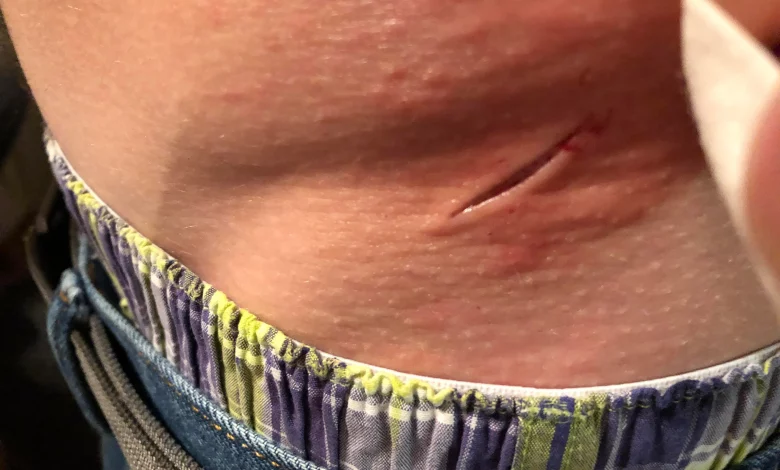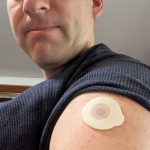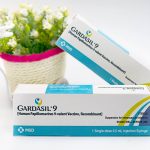When To Get A Tetanus Shot After A Cut?

Tetanus is a serious disease of the nervous system caused by a toxin-producing bacterium. The disease causes muscle contractions, particularly of your jaw and neck muscles. Tetanus is commonly known as lockjaw.
Severe complications of tetanus can be life-threatening. There’s no cure for tetanus. Treatment focuses on managing symptoms and complications until the effects of the tetanus toxin resolve.
The average time from infection to the appearance of signs and symptoms (incubation period) is 10 days. The incubation period can range from 3 to 21 days.
The most common type of tetanus is called generalized tetanus. Signs and symptoms begin gradually and then progressively worsen over two weeks. They usually start at the jaw and progress downward on the body.
Signs and symptoms of generalized tetanus include:
- Painful muscle spasms and stiff, immovable muscles (muscle rigidity) in your jaw
- Tension of muscles around your lips, sometimes producing a persistent grin
- Painful spasms and rigidity in your neck muscles
- Difficulty swallowing
- Rigid abdominal muscles
Progression of tetanus results in repeated painful, seizure-like spasms that last for several minutes (generalized spasms). Usually, the neck and back arch, the legs become rigid, the arms are drawn up to the body, and the fists are clenched. Muscle rigidity in the neck and abdomen may cause breathing difficulties.
What Is the Tetanus Vaccine?
The tetanus vaccine is part of the recommended series of childhood and adult immunizations. A tetanus shot protects you from getting tetanus. Tetanus infections most commonly happen when you suffer a wound that gives the bacteria a chance to enter your body. For example, stepping on a nail is a common cause of tetanus infections. Once inside your body, the bacteria release a toxin that causes your muscles to tighten. This can cause your mouth to “lock” shut and make it hard to swallow. If not treated promptly, the muscle stiffness spreads and, in some cases, can cause death.
Because of the widespread use of vaccines, cases of tetanus are rare in the United States and other parts of the developed world. The disease remains a threat to people who aren’t up to date on their vaccinations. It’s more common in developing countries. In the United States, there are about 30 cases a year. These are mostly people who have not been vaccinated against tetanus or who have not kept up their booster shots every 10 years.
Four kinds of vaccines used today protect against tetanus, all of which also protect against other diseases:
- Diphtheria and tetanus (DT) vaccines
- Diphtheria, tetanus, and pertussis (DTaP) vaccines
- Tetanus and diphtheria (Td) vaccines
- Tetanus, diphtheria, and pertussis (Tdap) vaccines
Babies and children younger than 7 years old receive DTaP or DT, while older children and adults receive Tdap and Td.
CDC recommends tetanus vaccination for all babies and children, preteens and teens, and adults. Talk with your doctor or healthcare professional if you have questions about tetanus vaccines.
When to get a tetanus shot after a cut?
Any cut or wound must be thoroughly cleaned to prevent infection. A tetanus-prone wound should be treated by a medical professional immediately.
A wound likely to develop tetanus is defined as:
- a wound or burn that requires surgical intervention that is delayed for over 6 hours
- a wound or burn that has a considerable amount of removed tissue
- any puncture-type injury that has been in contact with manure or soil
- serious fractures where the bone is exposed to infection, such as compound fractures
- wounds or burns in patients with systemic sepsis
Any patient with a wound listed above should receive tetanus immunoglobulin (TIg) as soon as possible, even if they have been vaccinated. TIg IS made from blood and contains antibodies to tetanus. It provides fast protection but is not long-lasting. Experts say that TIg injections can be safely administered to pregnant and breastfeeding mothers.
Tetanus immune globulin (TIg) contains large amounts of antibodies taken from donated human blood. Antibodies are proteins that a person’s immune system makes to fight germs, such as bacteria and viruses. Your condition will be monitored carefully while you are receiving this medicine.
This medicine is made from human blood. It may be possible to pass an infection in this medicine. Talk to your doctor about the risks and benefits of this medicine.
This medicine may interfere with live virus vaccines. Before you get other live virus vaccines, tell your health care professional if you have received this medicine within the past 3 months.
What side effects may I notice from receiving this medicine?
Side effects that you should report to your doctor or health care professional as soon as possible:
• allergic reactions like skin rash, itching or hives, swelling of the face, lips, or tongue
• breathing problems
• chest pain or tightness
• trouble passing urine or change in the amount of urine
Side effects that usually do not require medical attention (report to your doctor or health care professional if they continue or are bothersome):
• fever
• pain and tenderness at the site where injected
This list may not describe all possible side effects. Call your doctor for medical advice about side effects. You may report side effects to FDA at 1-800-FDA-1088.





